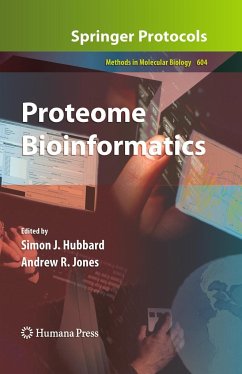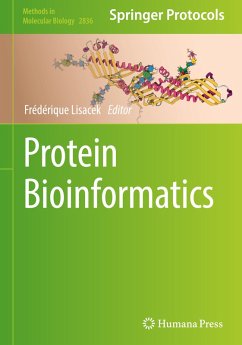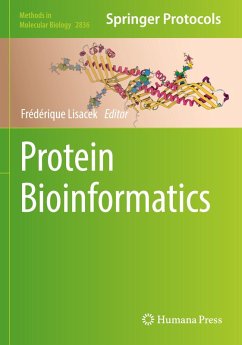
Bioinformatics for Comparative Proteomics
Versandkostenfrei!
Versandfertig in 6-10 Tagen
83,99 €
inkl. MwSt.

PAYBACK Punkte
42 °P sammeln!
With the rapid development of proteomic technologies in the life sciences and in clinical applications, many bioinformatics methodologies, databases, and software tools have been developed to support comparative proteomics study. In Bioinformatics for Comparative Proteomics, experts in the field highlight the current status, challenges, open problems, and future trends for developing bioinformatics tools and resources for comparative proteomics research in order to deliver a definitive reference providing both the breadth and depth needed on the subject. Structured in three major sections, thi...
With the rapid development of proteomic technologies in the life sciences and in clinical applications, many bioinformatics methodologies, databases, and software tools have been developed to support comparative proteomics study. In Bioinformatics for Comparative Proteomics, experts in the field highlight the current status, challenges, open problems, and future trends for developing bioinformatics tools and resources for comparative proteomics research in order to deliver a definitive reference providing both the breadth and depth needed on the subject. Structured in three major sections, this detailed volume covers basic bioinformatics frameworks relating to comparative proteomics, bioinformatics databases and tools for proteomics data analysis, and integrated bioinformatics systems and approaches for studying comparative proteomics in the systems biology context. Written for the highly successful Methods in Molecular Biology(TM) series, the contributions in this book providethe meticulous, step-by-step description and implementation advice that is crucial for getting optimal results in the lab.Comprehensive and easy-to-use, Bioinformatics for Comparative Proteomics serves all readers who wish to learn about state-of-the-art bioinformatics databases and tools, novel computational methods and future trends in proteomics data analysis, and comparative proteomics in systems biology.














